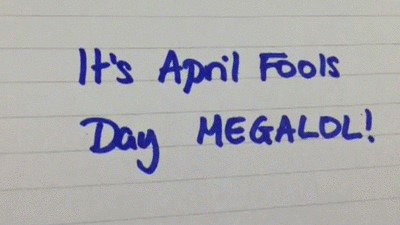It’s April, the month that always starts with some type of trickery or falsehood that lures you into becoming an April fool.
With that as a backdrop, let’s explore some of the ways that writing and word choice can be just as tricky, and, if you’re not careful, can make you look foolish.
Homophones
There are a lot of the words that sound the same but are spelled differently. You know the classic grammar monkeys like two/too/to and there/their/they’re. But when we’re reviewing proposals, we see a lot of lead when it should be led, and roll (verb) when describing someone’s job – their role (noun).
Another big one we see is compliment/complement. You pay someone a compliment, but local coffee provides the perfect complement to a breakfast menu.
Meaning
There’s a classic line from the movie “The Princess Bride” that says, “You keep using that word. I do not think it means what you think it means.”

If you’re trying to sell a prospective client on the benefits of signing a contract with us, you might write that our services can help them reach their ultimate goal of becoming the industry leader. But if you write penultimate goal – thinking that’s an even greater achievement – you would be wrong. Penultimate means “next to last.”
That’s nobody’s goal.
There are also words that have lost meaning over time because they are overused, especially in the business world. Think holistic, synergy and acronyms in general. Avoid these foolish buzzwords and use simple words instead to get your point across.
Spelling
Spellcheck is your friend, but it’s better to learn the rules for words you know you’ll use a lot – especially tricky ones. The word judge, for instance, ends with an E, but you lose the E in judgment; same for acknowledge and acknowledgment (except in Britain), but not so for knowledge and knowledgeable.
Yes, it can get confusing.
Other spelling mistakes we see that can make you look foolish are those specific to the client. Google the names of your prospective client as well as the recipient to make sure it’s not only spelled correctly, but to confirm other related items like their title, the address, the mascot, etc.
Pro tip: Double-check names on LinkedIn; they should be spelled correctly there because the person usually will have written it themselves.

There’s an old newspaper adage that reminds us to never just assume a word or fact is correct: “If your mother says she loves you, check it out.”
Resources like Google and even the editors at the PDC are too readily available for you to take the risk of looking foolish – in April or otherwise.
Don’t be sad. We’ll be back on the first Monday next month with a new blog post. If you can’t wait that long—whether because you have a topic you’d love us to cover, a question or you simply want to throw your two cents into the pot—we love talkin’ shop, so drop us a line.






